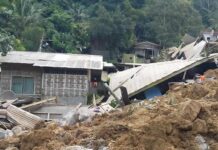Black Soldier Fly (BSF) farming remains a relatively unknown practice to many, but with proper management, it has the potential to yield substantial profits. Currently, only a few individuals in the Philippines are engaged in this endeavor. In this article, we’ll explore what BSF farming entails and why it is worth considering.
What is the Black Soldier Fly (BSF)?
The Black Soldier Fly, scientifically known as Hermetia illucens (Linnaeus), is a sleek and wasp-like fly with distinctive characteristics. Unlike wasps, these flies have only two wings and do not possess a stinger. Although their loud buzzing might cause concern, adult soldier flies pose no harm to humans.

Description and Life Cycle:
Adult Black Soldier Flies come in various colors like yellow, green, black, or blue, with some having a metallic appearance. They often mimic other flying insects, such as bees and wasps. Black soldier fly adults, in particular, have a wasp-like appearance. The sporting black or blue colors and featuring two translucent “windows” on the first abdominal segment. Typically, adults are 15mm to 20mm in length, with elongated antennae and white coloration on their legs.
After two days of emerging from their pupal cases, mating occurs in mid-air as male flies intercept passing females. Male soldier flies utilize designated “lekking” sites, defending them against intruders. Females lay approximately 500 eggs in cracks and crevices near decaying matter like dung, carrion, garbage, and other organic waste. The eggs hatch into larvae in about four days. The larvae, which grow to about 27mm in length and 6mm in width. Pass through six instars over approximately 14 days. During this stage, they are voracious eaters, but as adults, they no longer require food. Relying on the fats stored during their larval development.
The Economic Importance of BSF:
The adult black soldier fly is not considered a pest. Instead, the larvae of BSF are highly effective manure recyclers. A “Black Soldier Fly Manure Management System” has been proposed to reduce livestock waste. It provide a food source for animals, especially chickens. Studies have shown that feeding swine manure to black soldier fly larvae can significantly reduce waste material. As the larvae mature, they self-harvest and are subsequently available as livestock feed. Moreover, black soldier fly larvae are a rich source of oil and protein for animal feed. It has the potential to transform organic waste into valuable fertilizer.
Black Soldier Fly Farming in the Philippines:
Although BSF farming is not yet commercially established in the Philippines. Some backyard farmers raise BSF to support their chicken and tilapia farming, providing an additional source of protein.
Getting started with BSF farming is relatively straightforward. A mixture of animal feed and coconut pulp (sapal ng niyog). And a moistened with a small amount of molasses and water, is placed in a container. After a few days, BSF larvae will appear and consume the mixture until they grow larger.

Profitability of BSF Farming:
BSF farming proves to be profitable and does not require a significant amount of initial capital. With each kilogram containing around 6,700 BSF larvae. You only need about 15 adult female BSFs to produce 1 kg of larvae. These larvae can be sold for up to P900 per kg. Many small growers are already selling both live and dried BSF larvae online at similar prices. Moreover, farmers who raise fish and poultry can substantially reduce their animal feed costs. By utilizing BSF larvae as part of their feed.
Conclusion:
Black Soldier Fly farming presents a promising opportunity in the Philippines. With its ability to recycle organic waste. Serve as a valuable protein source for animals, it benefits both the environment and the farmers’ incomes. As awareness grows and more individuals venture into BSF farming, it could become a significant industry, contributing to sustainable agriculture in the country.














